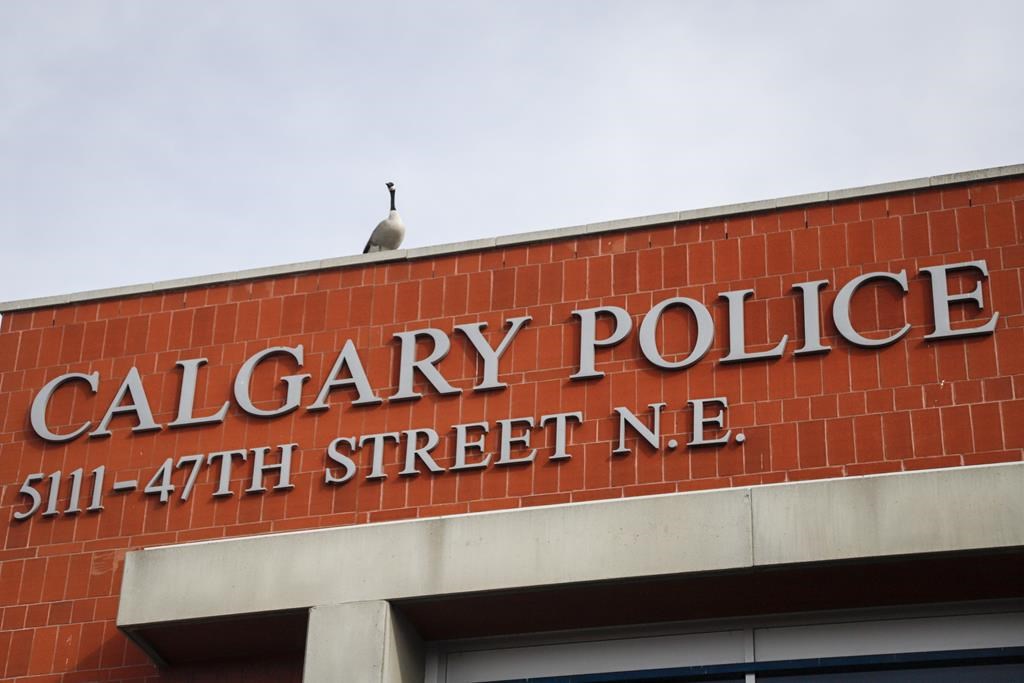The Calgary Police Service has a plan for how to improve School Resource Officers (SROs) in city schools.

On Wednesday, the Calgary Police Commission heard that after two and a half years of hearing from students, parents, teachers and community members, police found SROs have “general positive support,” including from racialized, LGBTQ2 and disabled students.
“The people we consulted want the program to continue with, of course, some refinements and enhancements,” deputy chief Katie McLellan said.
The Calgary Police Service developed 46 recommendations addressing areas like clearly defining the role of the officers in schools, better training and hiring of SROs, improving transparency and communication, and better collaboration with the community. Police also plan on improving data collection and evaluation on SROs as a way to continually improve those officers’ performance as a whole.
Police said most children in elementary schools were generally positive in their impressions of officers and only interact with police during one of two annual lockdown drills.

“We’re not serving them super well to go on for success in junior high,” Keri Rak said.
Rak said student opinions of police tend to become negative in junior high, thanks largely to mass and social media.
“On the other hand, when they have had those interactions with police in their school, they have a lot of positive things to say. So the folks who have had those face-to-face interactions are doing really well,” Rak said.
But some experiences of racialized students raised concerns from members of the civilian oversight body.

Quoting the engagement reports, Commissioner Heather Campbell said the student response to the question, “What do you want from your school police officer to teach you?” of “To trust them,” reveals how the existing SROs “clearly” haven’t met the objective of having kids view CPS as a trusted resource.
“There was a child who was asked by an officer in bicycle safety how he was going to wear a bike helmet with that ‘thing’ on his head. That ‘thing’ was his turban,” Campbell said.
“Please ensure that we don’t gloss over the healing of past and current harms that emanated from the SRO program as you move forward to police engaging youth in schools.”
Police also said most of the negative sentiment of SROs were from outside the student and teacher populations.
Nearly 3,000 people took part in engagements conducted by the City of Calgary’s engagement team, Action Dignity and Argyle, using both online and in-person methods. It was in response to the 2020 racial justice reckoning at city hall after the death of George Floyd at the hands of Minneapolis police officers.

Calgary police plan to start implementing 29 of the recommendations within the next year, with some work already underway.
A working group tasked with reimagining SROs is being formed. Service-wide anti-racism training has become mandatory. And police said they are in the process of acknowledging past and current harms from the SRO program that dates back to 1976.
The next steps for police include developing memoranda of understanding with school boards, forming an advisory board for the SRO reform work and launching an SRO-specific website.
“It is our deepest conviction that police engaging with youth in non-adversarial environments such as schools builds positive relationships while legitimizing the role of police as community partners with students and faculty alike,” Supt. Asif Rashid said.
“That said, we acknowledge that not all students have had positive outcomes with police in school settings, as the deputy said, particularly within the historical context of the residential school system.
“It’s within this historical context that we set about working with the community to reimagine the role of police, engaging with youth in schools. And we did so by centering the voices on those from Indigenous, racialized and marginalized communities.”
Police also said the SRO program is understaffed, to the tune of 13 officer positions that have been authorized but not filled.


Comments